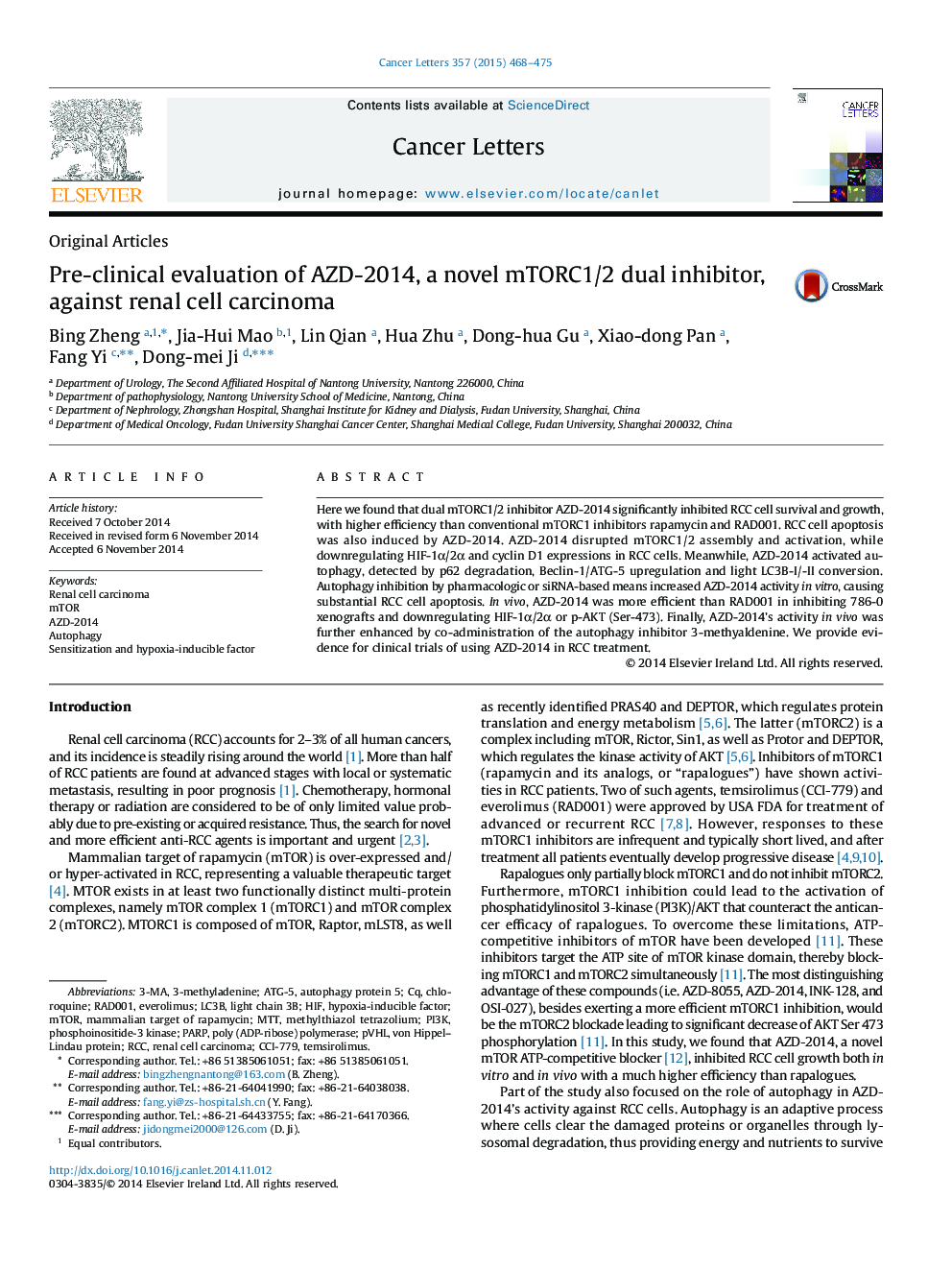| Article ID | Journal | Published Year | Pages | File Type |
|---|---|---|---|---|
| 2116166 | Cancer Letters | 2015 | 8 Pages |
•AZD-2014 inhibits RCC cell growth in vitro, more efficiently than rapamycin/RAD001.•AZD-2014 induces apoptosis in RCC cells, but not in non-cancerous HK-2 cells.•AZD-2014 disrupts mTORC1/2 assembly/activation, downregulating mTOR-regulated genes.•Autophagy inhibition increased AZD-2014 activity both in vivo and in vitro.•AZD-2014 shows higher efficiency than RAD001 in inhibiting RCC xenografts in vivo.
Here we found that dual mTORC1/2 inhibitor AZD-2014 significantly inhibited RCC cell survival and growth, with higher efficiency than conventional mTORC1 inhibitors rapamycin and RAD001. RCC cell apoptosis was also induced by AZD-2014. AZD-2014 disrupted mTORC1/2 assembly and activation, while downregulating HIF-1α/2α and cyclin D1 expressions in RCC cells. Meanwhile, AZD-2014 activated autophagy, detected by p62 degradation, Beclin-1/ATG-5 upregulation and light LC3B-I/-II conversion. Autophagy inhibition by pharmacologic or siRNA-based means increased AZD-2014 activity in vitro, causing substantial RCC cell apoptosis. In vivo, AZD-2014 was more efficient than RAD001 in inhibiting 786-0 xenografts and downregulating HIF-1α/2α or p-AKT (Ser-473). Finally, AZD-2014's activity in vivo was further enhanced by co-administration of the autophagy inhibitor 3-methyaldenine. We provide evidence for clinical trials of using AZD-2014 in RCC treatment.
